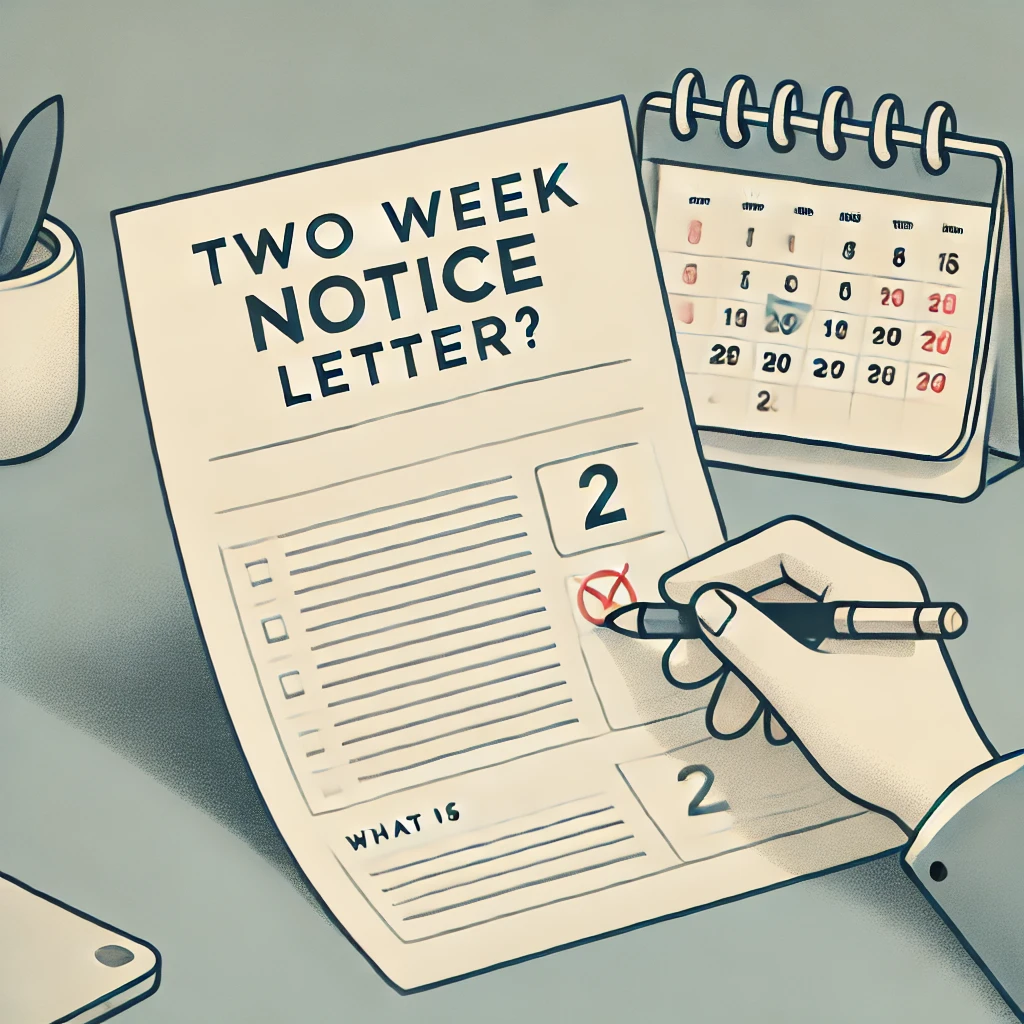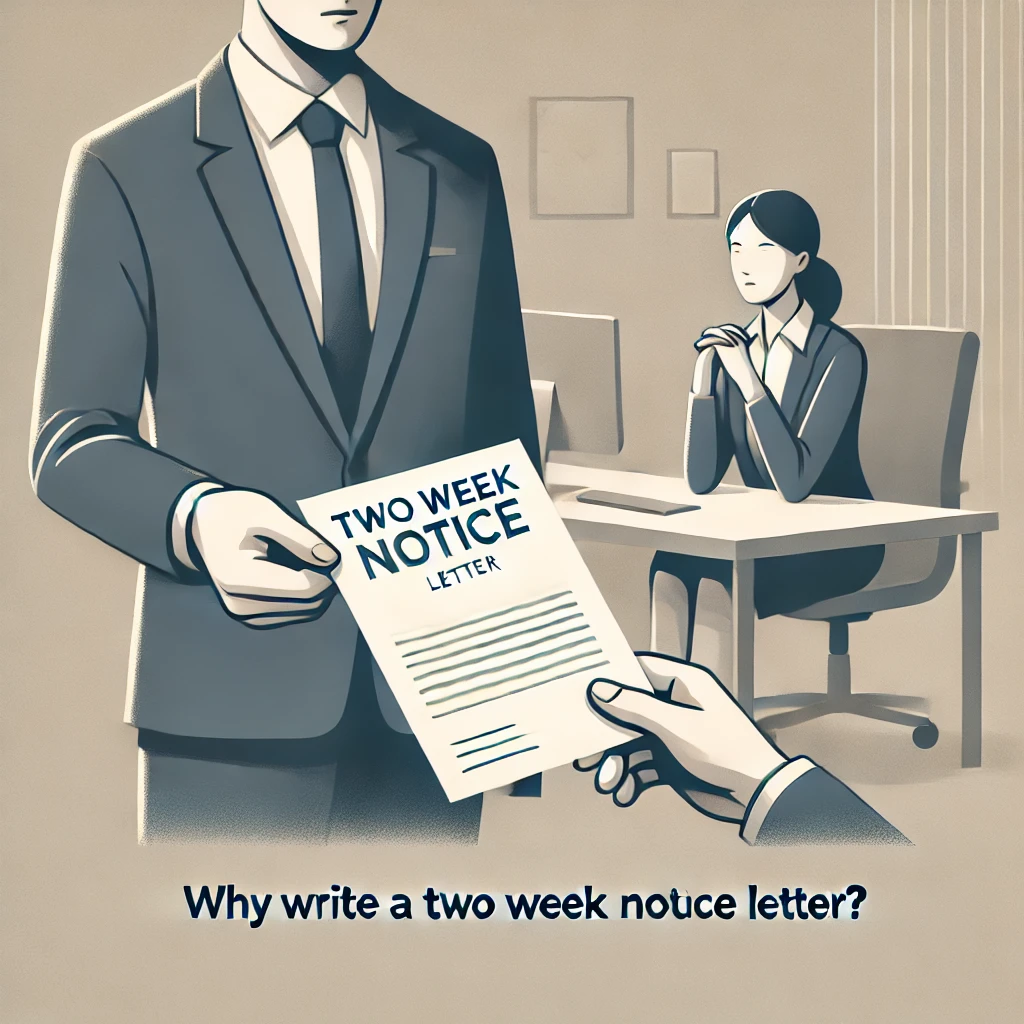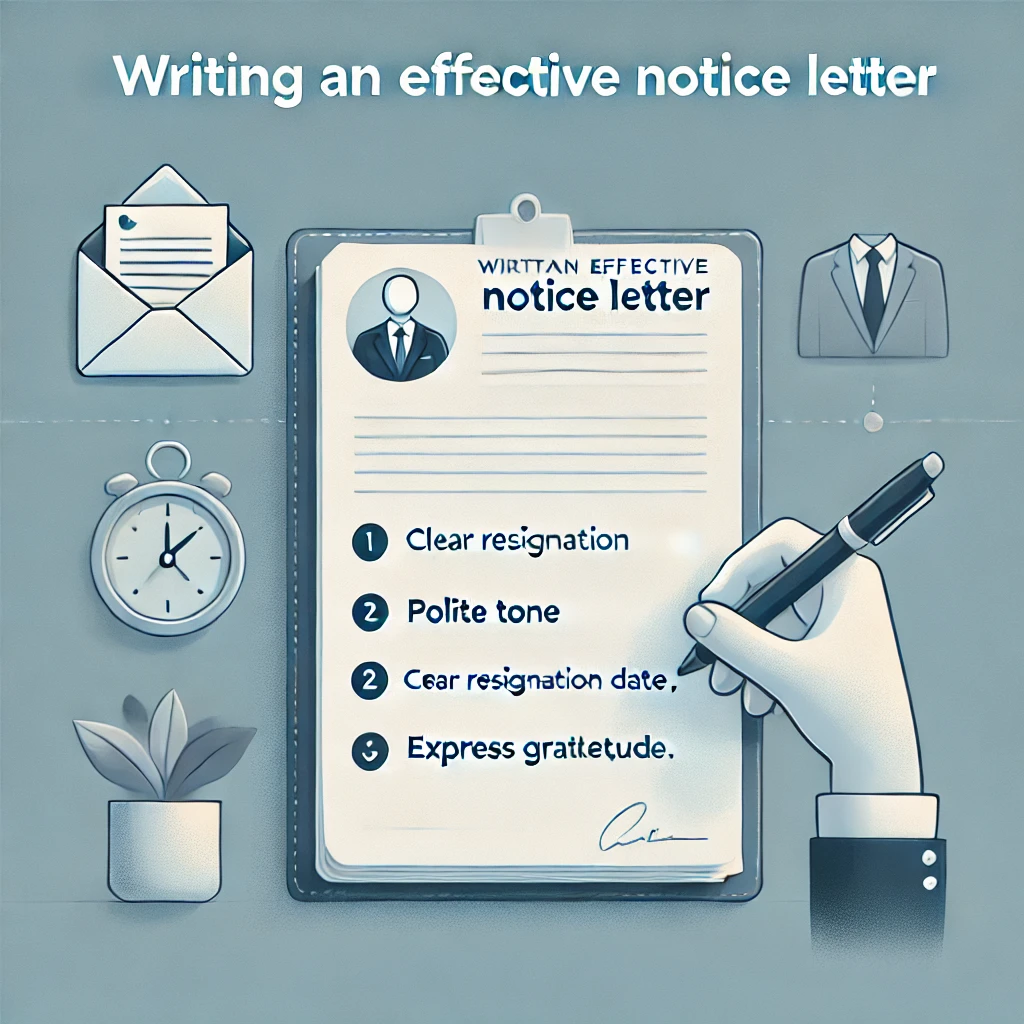The Perfect 2 Week Notice Letter in Seconds, Generated by AI , Totally Free
No need to worry about the format, just fill in the blanks and click the button to generate your letter.

About Two Week Notice Letter
What is a Two Week Notice Letter?
A two week notice letter is a formal document that serves as your official resignation announcement to your employer. This professional courtesy has become a standard practice across most industries and organizations worldwide. The two-week timeframe provides your employer with a reasonable period to begin the transition process, including initiating the search for your replacement, redistributing your responsibilities, and ensuring minimal disruption to ongoing projects and team dynamics.

This notice period is particularly crucial in professional environments where your role involves complex responsibilities or requires specialized knowledge. It allows for proper knowledge transfer and documentation of your current projects, processes, and important contacts. The two-week period has become a professional standard because it strikes a balance between the employer's need to maintain business continuity and the employee's desire to move forward with their career.
Why Write a Two Week Notice Letter?
Writing a formal two week notice letter is more than just a professional courtesy; it's a crucial step in maintaining your professional reputation and network. In today's interconnected business world, maintaining positive relationships with former employers can significantly impact your future career opportunities. A well-written notice letter demonstrates your professionalism, respect for your employer, and commitment to ensuring a smooth transition.

Even in situations where your employment experience hasn't been ideal, providing proper notice through a professional letter can help preserve important professional relationships. Future employers often contact previous employers for references, and your handling of the resignation process can significantly influence these future recommendations. Additionally, you never know when you might cross paths with former colleagues or employers in different professional contexts.
The letter also serves as official documentation of your resignation, which can be important for both HR records and your personal employment history. It provides clear communication about your departure timeline and helps prevent any misunderstandings about your last day of employment, transition plans, or final responsibilities.
Writing an Effective Notice Letter
Crafting an effective two week notice letter requires careful consideration of both content and tone. The letter should be professional, clear, and concise while maintaining a positive and respectful tone throughout. Begin by clearly stating your intention to resign and specify your last working day. This information should appear in the first paragraph to ensure there's no ambiguity about your plans.

Express genuine gratitude for the opportunities you've had during your employment. This might include mentioning specific projects, skills you've developed, or valuable experiences you've gained. Even if your experience hasn't been entirely positive, focus on the beneficial aspects of your time with the company. This demonstrates maturity and professionalism.
Offer specific ways you plan to help with the transition. This might include creating detailed documentation, training team members, or being available for questions after your departure. Be realistic about what you can accomplish in your remaining time, and make concrete, achievable commitments rather than vague offers of assistance.
Remember to maintain a constructive tone throughout the letter. Avoid any negative comments or criticisms, regardless of your reasons for leaving. This isn't the place to air grievances or provide feedback about company policies or management styles. Keep the focus on your departure and transition plans.
After Submitting Your Notice
The period following the submission of your notice is crucial for maintaining professional relationships and ensuring a positive lasting impression. Start by creating comprehensive documentation of your current projects, including status updates, key contacts, and any critical deadlines or milestones. This documentation will be invaluable for your successor and demonstrates your commitment to a smooth transition.

Focus on knowledge transfer during your remaining time. Schedule meetings with relevant team members to share important information and insights. If possible, create process documents or guides that outline your regular responsibilities and any specific procedures you follow. This is particularly important for tasks that might not be obvious to others or that require specific technical knowledge.
Maintain your professionalism and work ethic until your last day. Continue to meet deadlines, attend meetings, and contribute to team objectives. This period can significantly impact how you're remembered by your colleagues and supervisors. It's also an opportunity to strengthen professional relationships that might benefit your career in the future.
Before your last day, ensure you've collected any necessary documentation for your records, including copies of performance reviews, important emails, and contact information for colleagues you'd like to stay in touch with. Schedule exit interviews if required and prepare for them professionally and constructively.
Key Tips for a Successful Transition:
- Keep your letter professional, positive, and focused on the future
- Be explicit about your last working day to avoid any confusion
- Express sincere gratitude for the opportunities and experiences gained
- Make specific, realistic offers to help with the transition process
- Avoid sharing unnecessary personal details or reasons for leaving
- Maintain your professional standards and work ethic until your final day
- Document your processes and responsibilities thoroughly
- Prepare comprehensive handover notes for your successor
- Schedule knowledge transfer sessions with relevant team members
- Collect necessary documentation and contact information before leaving
- Leave your work in a state that others can easily understand and continue
- Focus on strengthening professional relationships during your notice period